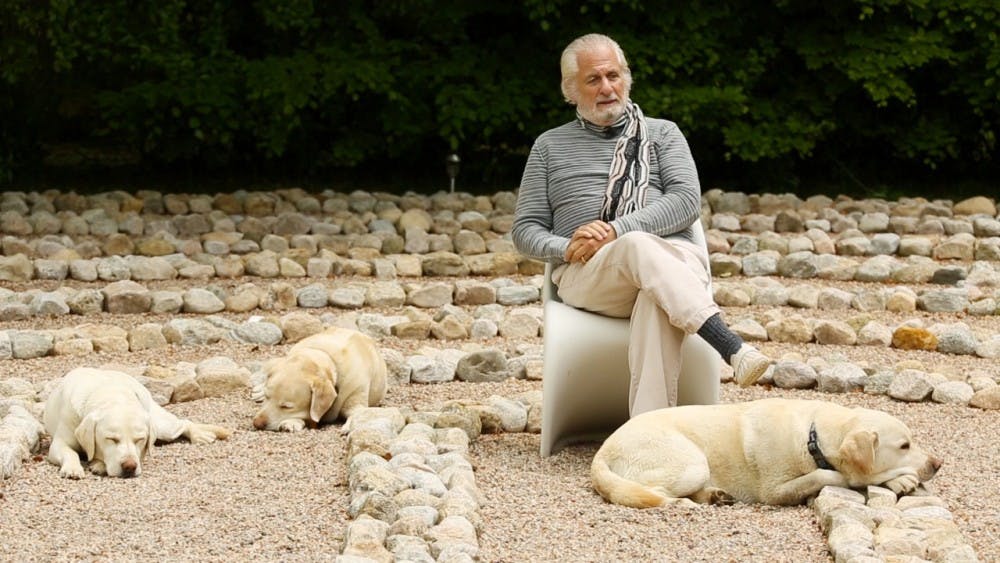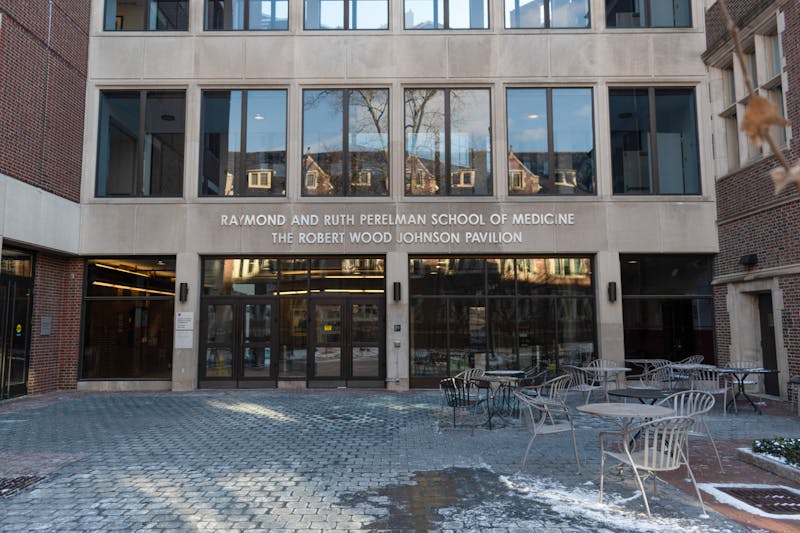
Creator of the TED conference and School of Design graduate Richard Saul Wurman finds creativity through terror.
This Friday, Wurman, who has been dubbed an “intellectual hedonist,” will be honored at the 80th Annual Alumni Award of Merit Gala , along with former Chairman of the Board of Trustees James Riepe and several other alumni.
After creating and chairing the TED conference from 1984 to 2003, Wurman sold the brand when he realized his inspiration was nearing a plateau.
“I realized that the comfort that gave me smothers my ability to feel enough terror to think of new ideas,” Wurman said.
When Wurman was accepted to Penn, he struck a deal with the dean of the School of Architecture that as long as he maintained an A-minus average and took all his required courses, he could enroll in as many courses as he chose. Wurman went to school every day and night as well as every Saturday, studying “arcane, tiny things.”
“So in that sense, I’m quite shallow, but very broad,” he said. “I found that made my life more interesting. And it continues to.”
It was at Penn that Wurman met his mentor, eminent architect Louis Kahn . Wurman studied under Kahn as an undergraduate, wrote his senior thesis under Kahn, and went on to write two biographies and a collective book of Kahn’s work.
When Wurman launched the first TED conference in 1984, the conference focused on the convergence between three unique American businesses — technology, entertainment and design — which combined to form the now-ubiquitous TED acronym.
“Nobody knew what I was talking about,” Wurman said. “It was very hard to get people to come.”
But the idea quickly exploded into popularity without any advertising efforts. Wurman did not even announce who the speakers would be. To this day, he uses neither a PR person nor the internet to advertise his work.
“This was before the internet. This was before Facebook. This was before email and Twittering,” Wurman said. “The world can still work like that.”
In 2012, Wurman’s next conference, the WWW conference, was held in California. Inspired by the 19th century salon, the conference sought to foster conversations between pairs of thinkers ranging from Mark Cuban to David Blaine to Dan Ariely. Wurman described it as the best conference he ever organized, out of roughly 40.
“And that’s the reason I’ll never do it again,” he said.
A restless innovator, Wurman is a man who wears many hats — though they are all simultaneously stacked atop his head. Starting with a career in architecture, Wurman flits between conference organizing, book writing and other professional ventures. Currently, he is working on his 84th book, which will explore methods of understanding and planning an upcoming conference called the 555 conference, which will bring together five experts to share perspectives on the future. Wurman is also working on a project called the Urban Observatory, an upcoming Smithsonian exhibit for comparing cities around the world, and doing consulting work for a few large medical companies.
Wurman’s 83 books span an eclectic range of topics — from football and road atlases to city guides and Olympics games — but he finds value in learning from others.
“Richard Wurman represents Penn’s ideals because he believes in the power of ideas to change attitudes, lives and ultimately — the world,” Penn President Amy Gutmann said in an email.
Credited with coining the term “information architecture,” Wurman embraces his own ignorance.
“I wanted to figure out a lifestyle, a career, that systemically and creatively allowed me to curate the information that I couldn’t understand into a clear path of understanding,” Wurman said. “So basically, my object is to make the complex clear.”
With a laundry list of accolades including four honorary doctorate degrees, Wurman said he still aspires to be “the dumbest person in the room,” surrounding himself with people who are smarter than he is.
“That’s what TED was about — learning from others,” he said.
Since his departure from the TED helm, however, Wurman has developed a sense of skepticism for what the TED conference has become, suggesting a developing air of commercialism that depreciates the conference’s original objective of truth.
“I bemoan the fact that it is all edited and rehearsed and does not have the improvisation and spontaneity that one often attaches to the truth. It’s a packaged thing now,” Wurman said.
The original spirit of the TED conference, he said, is carried forth in TEDx, a grassroots organization that encourages communities, organizations and individuals to spark conversations. TEDxPenn is in the process of planning a conference to be held in late March, which will bring about 18 speakers to campus.
College junior Miranda Wang is the first undergraduate curator of TEDxPenn and a TED conference speaker herself. She was invited to speak at TED2013 about plastic pollution and potential solutions through biotechnology.
While giving a run-through of her talk, Wang met Wurman for the first time.
“He passed by and said ‘No, I don’t believe in any of this! Global climate change is not going to stop — let’s all buy land in the North,’” she said of the encounter, adding that Wurman came across as a realist. “If I could meet him again, I would say, ‘Hey, this is what I’ve accomplished since then.’”
At their cores, TED and TEDx conferences seek to incite conversation.
“I somewhat worship conversation,” Wurman said. “Conversation is critical to creative activity.”
The Daily Pennsylvanian is an independent, student-run newspaper. Please consider making a donation to support the coverage that shapes the University. Your generosity ensures a future of strong journalism at Penn.
DonatePlease note All comments are eligible for publication in The Daily Pennsylvanian.







